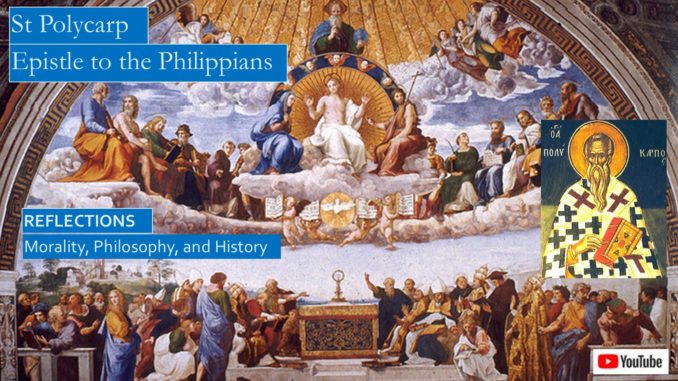
We know more about Polycarp than most second-generation Church Fathers. “Irenaeus tells us that the youthful Polycarp had been ‘instructed by the Apostles, and many of his acquaintances had seen Christ.’” Polycarp’s name could be translated as very fruitful, in his Epistle to Polycarp St Ignatius said his beliefs were ‘anchored to an unshakable rock.’ Irenaeus also tells us that Polycarp had many fond memories of his years of his years as disciple to St John the Apostle.
St Polycarp was bishop Smyrna, which claimed to be the birthplace of Homer, and was the recipient of one of the church letters in the Book of Revelations. With a rich pagan tradition, Smyrna was also a center of the cult of emperor worship. The authorities complied with Rome’s request for unrepentant Christians to sacrifice in the arena, recorded in the work Martyrdom of Polycarp.[1]
YouTube video for this blog: https://youtu.be/wmZ8A9R0ngE
EPISTLE OF POLYCARP TO THE PHILIPPIANS
St Paul in First Corinthians tells us that “faith, hope, and love abide, these three; and the greatest of these is love.”[2] Faith, hope and love are the core of the Christian message, Polycarp tells us that “Faith is the mother of us all, with Hope following in her train, and Love of God and Christ and our neighbor leading the way. Let a man’s mind be wholly bent on these, and he has fulfilled all the demands of holiness; for to possess Love is to be beyond the reach of sin.”
This reminds us of St Augustine’s admonition that if we truly Love God and love our neighbor we can do as we will.
St Polycarp advises us, “when it is in your power to perform an act of kindness, never put it off to another time, for ‘charity is death’s reprieve.’”
This verse is quoted from Tobit, which is unfamiliar to many Christians, so we will quote this section, which is an exhortation from the Angel Raphael to the God-fearing newlyweds Tobias and Sarah, “Do good and evil will not overtake you. Prayer with fasting is good, but better than both is almsgiving with righteousness. A little with righteousness is better than wealth with wrongdoing. It is better to give alms than to lay up gold. For almsgiving saves from death and purges away every sin. Those who give alms will enjoy a full life, but those who commit sin and do wrong are their own worst enemies.”[3]
Endurance in the faith is a theme for Polycarp. Polycarp teaches us, “Jesus Christ steadfastly endured all things for our sakes, that we might have life in Him. Let us imitate that patient endurance of His; and if we do have to suffer for His Name’s sake, let us give glory to Him.” We often prefer to pray for relief from our suffering, and become angry at God when suffering comes our way, when life is not fair, when we should rather pray for endurance so we can not only endure our suffering, but through our suffering give glory to God!
St Polycarp’s advice to widows shows a deep understanding of the commandment, Do not bear false witness, from which is also derived the commandments, Do not gossip, Do not damage your neighbor’s reputation, Do not be eager to retell prattle that might be true when it harms your neighbor. St Polycarp teaches us, “widows should be discreet in practicing our Lord’s faith; they should constantly intercede for everyone, and be careful to avoid any tale-bearing, spiteful tittle-tattle, false allegations, over-eagerness for money, or misconduct of any description.”
Gossip damages your reputation, when you talk about others not in the room, when does this talk cross over to gossip? Those who live godly lives praise their neighbor, it is always good to build up your neighbor’s reputation. But when news about your neighbor is not so good, what do you do? It is best when you don’t have anything good to say about someone to not say anything at all. Sometimes you are justified in frank talk when you are a manager talking about an employee, or you are parents talking about their children, or teachers talking about their students.
When you confer with others to plans how you can improve the situation of your neighbor, when you talk about their faults out of love when you can possibly influence them to improve, that possibly can be okay. It is better to be discreet than to tell the truth that hurts your neighbor, that violates the commandment, this hatefulness does not pass muster. St Polycarp teaches us, “Let us have a real ardor for goodness, taking every care to avoid giving offense.”
There is a footnote for the passage, “we should keep ourselves from wrongdoing, overreaching, penny-pinching, tale-telling, and prevaricating.” The translator says that in Greek the word for overreaching can also mean committing adultery, in the Scriptures and adultery and unfaithfulness are often interchangeable.
The church of the Philippians, even in the age of the martyrs to the faith, has a problem that many of our churches today face, the problem of the clergy dipping their hands into the till. St Polycarp warns us “against any excessive fondness for money,” that “eagerness for money should be entirely alien to the clergy.”
But Polycarp is also compassionate to the transgressors. “I feel the deepest sorrow for that man and his wife, may the Lord grant them real repentance. You must not be over-severe with them, for they are not your enemies, you must restore them, like parts of your own person that are ailing, so your whole body can be healthy. Do this, and you will be promoting your own spiritual welfare at the same time.”
People tend to be very defensive against thieves, regarding them to be in the same category as murderers and rapists, although robbing you of your possessions is not as great a calamity as robbing you of your life or dignity or chastity. The past few decades have unfortunately taught us that molesters are so prone to repeat offenses that we have to put the welfare of others over that of the offender and urge them to make a living in a profession that does not put them in contact with their victims. But we can afford to be more generous with thieves, for they cannot steal from us our treasures in Heaven, which is our true wealth.
My cousin told me of a sad case of a high church official many years ago who redirected a rather large contribution into a slush fund that financed fancy vacations, gambling trips, home improvements, and frequent withdrawals of large amounts of cash. The sad part of the story was this high church official was widely admired for his generosity, he was known handing wads of cash to destitute clergy, and for paying the tab for dozens of local parishioners at fancy restaurants on his many church travels. These local church members were only too happy to benefit from his generosity and rarely questioned how a modestly paid church official could afford such largesse.
Even in the age of martyrs, when anytime Christians could be drug before the local governors, Polycarp teaches us that we should “pray for all God’s people. Pray too for our sovereign lords, and for all governors and rulers, for any who abuse you or dislike you, and for the enemies of the Cross. Thus the fruits of your faith will be plain for all to see, and you will be perfected in Jesus Christ.”[4]
[1] Maxwell Staniforth, “Polycarp of Smyrna,” introduction to the “Epistle of Polycarp to the Philippians,” in in Early Christian Writings – The Apostolic Fathers (New York: Dorset Press, 1968), pp. 135-141.
[2] https://www.biblegateway.com/passage/?search=1+Corinthians+13%3A13&version=NRSVCE
[3] https://www.biblegateway.com/passage/?search=tobit+12&version=NRSVCE
[4] Polycarp, “Epistle of Polycarp to the Philippians,” in in Early Christian Writings – The Apostolic Fathers (New York: Dorset Press, 1968), pp. 144-150.

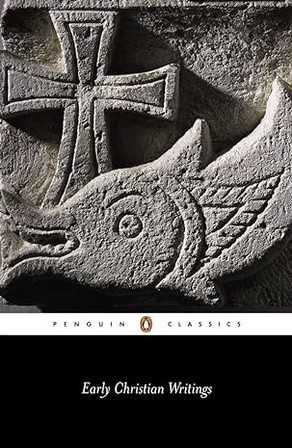
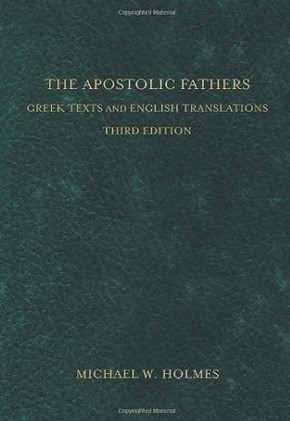
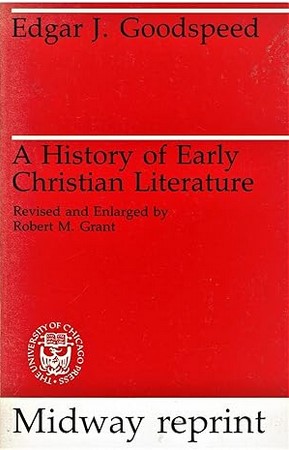
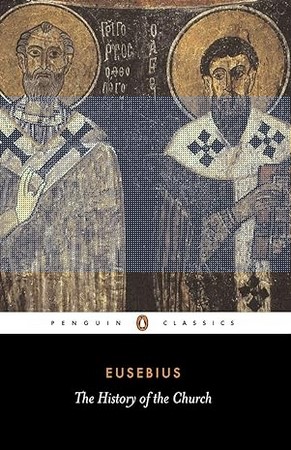
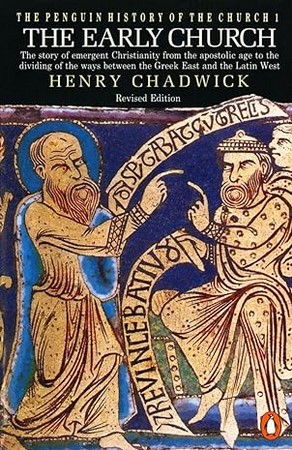
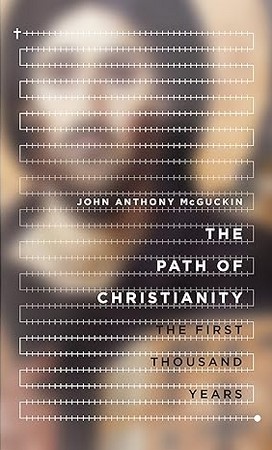
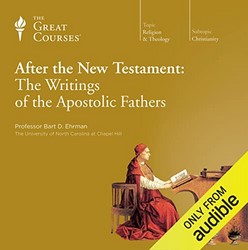

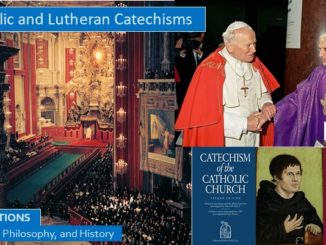
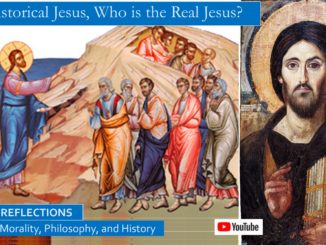
Be the first to comment